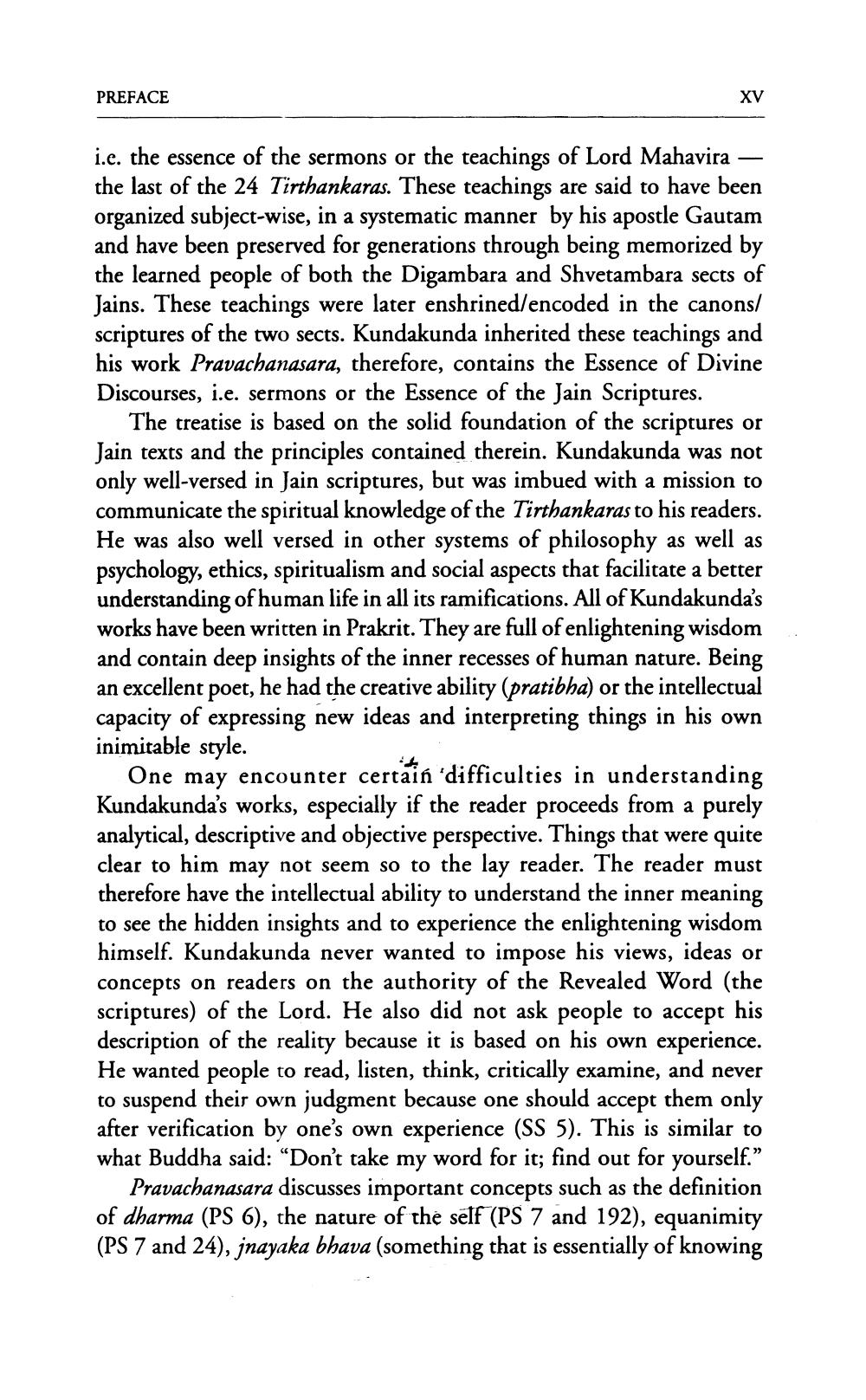________________
PREFACE
XV
i.e. the essence of the sermons or the teachings of Lord Mahavira — the last of the 24 Tirthankaras. These teachings are said to have been organized subject-wise, in a systematic manner by his apostle Gautam and have been preserved for generations through being memorized by the learned people of both the Digambara and Shvetambara sects of Jains. These teachings were later enshrined/encoded in the canons/ scriptures of the two sects. Kundakunda inherited these teachings and his work Pravachanasara, therefore, contains the Essence of Divine Discourses, i.e. sermons or the Essence of the Jain Scriptures.
The treatise is based on the solid foundation of the scriptures or Jain texts and the principles contained therein. Kundakunda was not only well-versed in Jain scriptures, but was imbued with a mission to communicate the spiritual knowledge of the Tirthankaras to his readers. He was also well versed in other systems of philosophy as well as psychology, ethics, spiritualism and social aspects that facilitate a better understanding of human life in all its ramifications. All of Kundakunda's works have been written in Prakrit. They are full of enlightening wisdom and contain deep insights of the inner recesses of human nature. Being an excellent poet, he had the creative ability (pratibha) or the intellectual capacity of expressing new ideas and interpreting things in his own inimitable style.
One may encounter certain 'difficulties in understanding Kundakunda's works, especially if the reader proceeds from a purely analytical, descriptive and objective perspective. Things that were quite clear to him may not seem so to the lay reader. The reader must therefore have the intellectual ability to understand the inner meaning to see the hidden insights and to experience the enlightening wisdom himself. Kundakunda never wanted to impose his views, ideas or concepts on readers on the authority of the Revealed Word (the scriptures) of the Lord. He also did not ask people to accept his description of the reality because it is based on his own experience. He wanted people to read, listen, think, critically examine, and never to suspend their own judgment because one should accept them only after verification by one's own experience (SS 5). This is similar to what Buddha said: “Don't take my word for it; find out for yourself.”
Pravachanasara discusses important concepts such as the definition of dharma (PS 6), the nature of the self (PS 7 and 192), equanimity (PS 7 and 24), jnayaka bhava (something that is essentially of knowing




